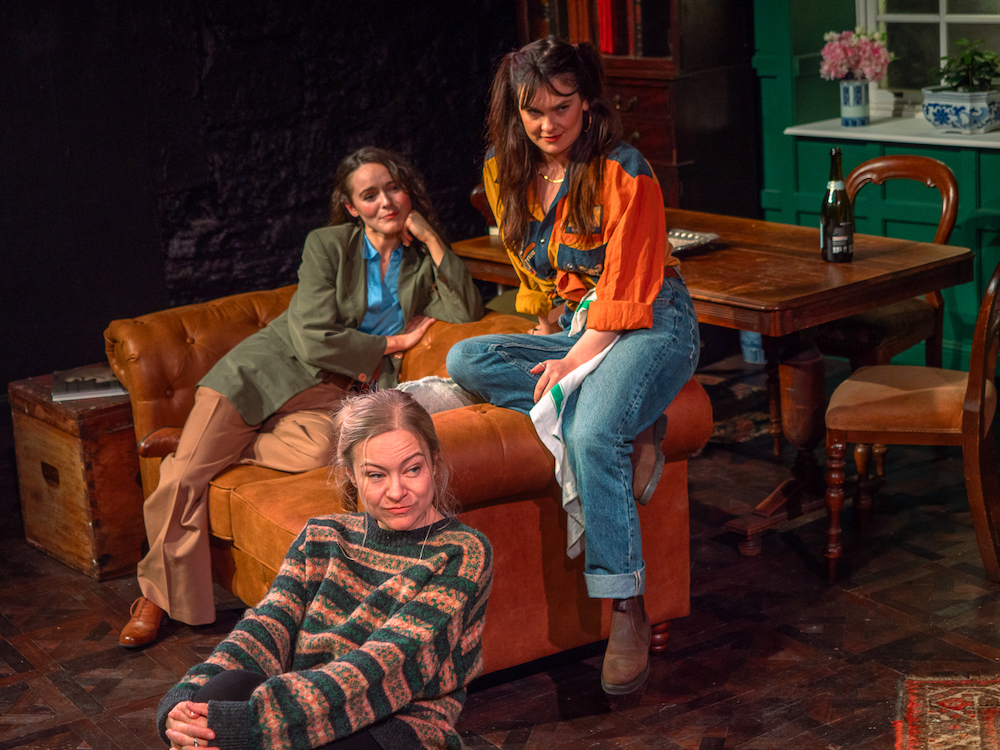
Chekhov goes Welsh in re-imagining of The Cherry Orchard

Like Shakespeare, Anton Chekhov remains fresh in theatre repertoire thanks to continual reinterpretation of his most famous plays. The Cherry Orchard, one of his pinnacle works, has seen multiple manifestations, some subtle, some cyber-punk, yet, if done well, they always retain the core elements of Chekhov’s masterful writing. That is absolutely true of the Secret House production currently playing at Old Fitz Theatre.
Of course, it helps when the playwright is of the calibre of award-winning Welsh writer, Gary Owen. It’s not Owen’s first adaptation rodeo; he has previously reconfigured Charles Dickens, Henrik Ibsen and yes, Shakespeare.

This version of The Cherry Orchard has been relocated to a country estate in Pembrokeshire, Wales and updated to the 1980s, and Owen’s distinctive Welsh voice permeates the dialogue. Some characters have been culled and elements have been slightly reworked, but otherwise it remains true to Chekhov’s vision.
This production features an impressive cast with strong, tight directing from Anthony Skuse. James Smithers’ set design makes good use of the Old Fitz Theatre’s limited space while managing to create an air of extravagent yet stifling space.

It’s 1982, and the household of Bloumfield, a mansion in Pembrokeshire, is in turmoil. Its owner, Rainey (Deborah Galanos), a petulant, middle-aged woman of means has slowly been squandering those means and now the entire estate is on the brink of foreclosure. Having been mostly absent for many years, Rainey returns to Bloumfield in time to create further anxiety and chaos as an impending auction looms.
Galanos absolutely chews the scenery with a Bette Davis-inspired, acid-tongued, alcohol-guzzling Rainey. Galanos, however, stops short of depicting Rainey as caricature, instead portraying a perennially grieving widow and mother clearly failing to outrun her demons.

Rainey’s visiting brother, Gabriel (Charles Mayer), is amiable if useless. He provides much of the comic relief. Gabriel is besotted with the housemaid, Dottie (Talia Benatar) who has zero interest in him.
Dottie has been with the family for a long time and now realises her future employment is threatened. Benatar’s Dottie has spunk, cynicism, wisdom and humanity and she comes out as one of the play’s more noble characters.

Anya (Amelia Parsonson) is Rainey’s birth daughter and Valerie (Jane Angharad) is Rainey’s adopted daughter. Both have issues with their mother, with each other, with understanding their eroding privilege and in their relationships. Parsonson plays Anya as conceited and immature, while Angharad’s Valerie is the long-suffering manager of household affairs who is acquiescent and tends to defer to Lewis (Dorje Swallow), the son of a one-time serf on Bloumfield and now a budding entrepreneur in his own right.
Lewis represents the changing social order, a working-class hero. He and Valerie are in a covert relationship which they eventually reveal.

Anya is also in a relationship, albeit, a flirtatious one which she takes much less seriously than her older, proletariat plaything, Ceri (James Smithers).
This is an excellent, engaging performance of The Cherry Orchard with good dialogue, a balance of humour and gravitas, and messages that very much resonate today.










